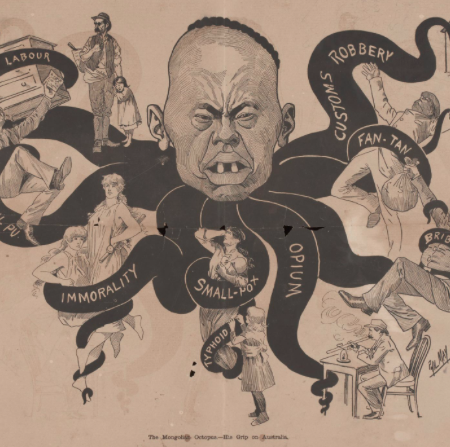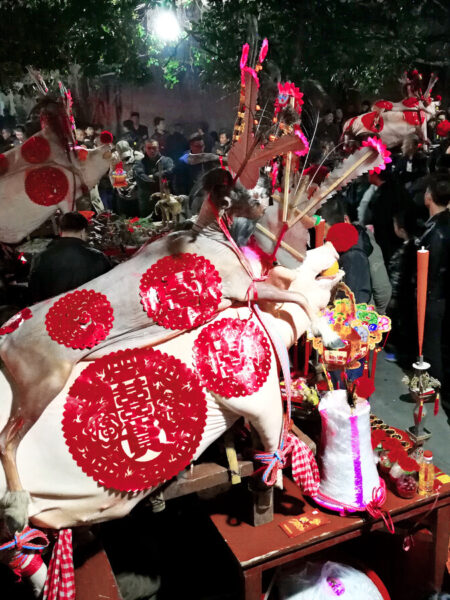
These months, we have been experiencing a unique situation, something unprecedented that has caused us to change our routines, relations, expectations, plans, etc., something able to turn around our lives. By now, you probably know I am talking about COVID. Yes, you are right. Now, inside this incredible field, where many topics can be pulled out, I will focus on one specifically: job interviews.
Personally, I have been doing interviews during the months of August and September 2020. Unifying my experience, relevant information found with my research and experiences gathered with oral history interviews, I will try to extract those key ideas that are marking the process many people follow each year: looking for a job. I will center my research in Spain, as cultural differences can affect this process and Spain is big enough to get interesting conclusions.
First, I would like to introduce you some relevant numbers to illustrate the magnitude of those changes in the way interviews are performed. In order to understand these numbers, I will first define three concepts: 1
Active: those who supply labor to produce goods and services or are available and able to join such production. They are subdivided into employed and unemployed.
Employed: those who work in exchange for payment or in kind or those having a job who have been temporarily absent from it due to illness, vacations, etc.
Unemployed: those unemployed, available for work and actively seeking employment.
As a reference, during the second trimester of 2020, these numbers were reached: 2 1,26M people entering to activity and 870k positions created. Besides, 1.56M people got out of unemployment.
Looking above, we can conclude that between 1.5 million people and 2 million people have been doing interviews during the second trimester of 2020. If we suppose three interviews per person to get a job, an average underestimated as people are usually taking a larger number, we would be talking about 5 million interviews per trimester, just in Spain. As we can see, the magnitude of this study is huge, the impact of big changes in interviews is affecting a great amount of job processes.
Once we got the context, I want to present some of the main differences in job interviews before and during the pandemic. As we can imagine, it is not easy for candidates to perform in selection processes during these times, and nor is it for interviewers. However, all these ideas of video-interviews, videoconferences, etc.–are they truly new to us?
During the last decades, we have experienced a great improvement in technology and computing. This implies changes, for example the tools human resources departments can use. We already knew about those video-interviews where you record yourself answering to questions before the pandemic. Furthermore, videoconferences were also typical, usually when the interviewer and the interviewee were in different cities/countries and the trip was expensive.
According to an analysis carried out by Adecco Group, 3 during March and April, and as a consequence of COVID, selection processes through digital tools have increased in an exponential manner. Before the pandemic video-interviews were completed by the 40% of participants in a selection process. These video-interviews have been increased by 150% since March 2020.
Moreover, there is a great handicap added to these recent changes. This health crisis coming with the pandemic has jeopardized important countries’ economies. For example, in the USA, the unemployment rate has gone from a classic 3.5% (till February 2020) to 8.4% in August 2020, going up to 14,7% in April 2020. 4 In Germany, Europe’s economic heart, GDP is predicted to fall 4.2% in 2020. 5 This is said to be the worst crisis since the Second World War. So, how is this affecting interview processes?
In a scene where unemployment is growing, companies have other interests than hiring people. At the same time, the quantity of people looking for a job continues increasing, reaching a great number of candidates for each job offer posted. This make processes more competitive and difficult for candidates, but also increases the difficulty for hiring staff, who need to manage a greater number of applicants for each offer, making it hard to better know personally each one of them.
Once the context is properly set, I would like to introduce you the results of some interviews I have performed, with the objective of giving this research a more personal and human approach. Two of them were with Human Resources staff that have experienced, or themselves changed, interview processes to adapt them to this context. Then, I will continue with a candidate who, like myself, has been applying to different jobs during the pandemic. I will end with an HR expert, a professor at University.
FIRST INTERVIEW – Talent Recruiter working at KPMG (consulting firm)
We started talking about how have job processes changed during the last years. As he mentions, the way our parents used to look for a job, in newspapers, around their neighborhood, has nothing to do with the means we count on nowadays. Now we can easily apply for offers in other regions or even other countries. Therefore, in general, job offers have increased. There is much more rotation, because it is easy to find better opportunities, so people keep changing their jobs and companies struggle to keep the same employee for several years.
At the same time, he claims that markets have not grown enough to absorb all those who graduate each year. This creates a much more competitive environment, making companies more difficult to select a candidate, but also makes it easier for them to find someone qualified and that fits in the job. During the pandemic, he has not seen a general reduction of job offers. What have changed are the sectors demanding employees and those who struggle. Those digital companies need more and more people, while other companies related to services implying presence have been lessened. This is the reason why in Spain, a country where tourism represents a great part of GDP, we have experienced a great impact on economy.
About online processes, he has not seen a special increase. He states most of the processes were already online before the pandemic. The problem is not specially in personal or online interview, as the loss of information is not significant most of the times, justifying the commodity and flexibility gained. The problem is the dehumanization of online processes on the whole. Now we apply to job offers with just a click, when before people used to go to the company or talk to someone so there was an interaction since the beginning. Now, with 1000 candidates applying with a click for an offer, they should expect just a click back, making it a very cold process.
SECOND INTERVIEW – Recruitment & HRBP at AKKA Technologies (engineering and technology consulting group)
We started looking at how processes have changed during last years. As she mentions, some time ago everything was in person and now, thanks to technology, online methods are available. These last months, it has even increased as the only way has been to do them online.
About the information lost without the presence, the percentage of non-verbal communication you cannot see is very small being given that you can continue seeing the interviewee through platforms such as Skype, Teams, Zoom, etc.
She believes face-to-face processes are closer, and the interaction is more direct. Moreover, it binds together the candidate with the interviewing company, as he can visit the office, experience the atmosphere, etc. However, online interviews allow to shorten processes and are much faster, which are two important advantages to take in account.
THIRD INTERVIEW – Industrial Engineering Student, Candidate
The third interview was directed to a 24 year old student who has been looking for a job during the months of July, August and the beginning of September. This is not the first time she has looked for a position and she has experienced much less interest on her CV, even if she has more studies/experience than other times. In the past she received offers from companies looking for profiles like hers, something far from her current reality.
She believes online processes are more impersonal, so information could be lost. Anyway, she is sure that this new modality (referring to online processes) requires a special previous preparation. She gives more importance to sitting position, what is visualized thorough the camera and the non-verbal language with hands.
Finally, she mentions to prefer in person processes, as she can establish better interaction with the interviewer and meet the company first-hand. At the same time, she claims online interviews have allowed her to keep several processes at the same time, with more commodity and flexibility, not having to move anywhere.
FOURTH INTERVIEW – HR Expert, Professor at Technical University of Madrid
This final interview, with a HR expert, started with the question about how job selection processes have changed during last years. As she claims, it depends a lot on the sector we are referring to. In general, big companies could be the best example of how the best practices are applied. There has been a development in two main aspects:
- First, more time is dedicated to knowing each person.
- Second, thanks to technology, there is a greater use of platforms to speed up, standardize and introduce efficiency. Now even with Artificial Intelligence. Before, it was more common to apply for a company while now candidates apply for single position.
Later, centering the conversation around COVID and the pandemic, she believes job offers have clearly decreased. We do not have the necessary perspective yet to now how will it be in some months once the situation will stabilize. There is a general political effort to keep employment safe, but the situation is bringing down the market. However, there are sectors as the technological or the health ones which are more demanded.
About selection processes, she states there are also two aspects to take in account:
- First, selection processes used to be online even before the pandemic, what is being new is onboarding teleworking. A messenger arriving at your place with a contract, then with a pc and a chair, etc. Is being a completely new experience.
- Second, and more focused on selection processes, we should differentiate sections. During the first stretches, the difference in doing it online and presential is so minimal that it compensates to do it online. Nevertheless, it is nearby the end of those processes that the contact with the candidate matters the most. Seeing how the person arrives, how he/she greets you, etc. That is why international companies used to pay flights and hotels for candidates during the last interviews of their processes.
Also, we can feel an important bias between adults on online interviews, depending on how used they are to this digital world are. Among young people, this bias is much more difficult to perceive.
Finally, once this virus will subside, she trusts those good online achievements to continue and the other good practices to come back. Teleworking is great, but full teleworking is not ideal. Also, this pandemic has been an impulse for almost every company to follow those good online methods (teleworking, online efficient processes, etc.) which started with some ground-breaking companies.
CONCLUSIONS
Once we have reached the end of the project, I would like to present you some of the main conclusions:
- Selection processes were already online before the pandemic. This has set in motion all those companies that had been left behind. The last stages of the processes and the onboarding lose without presence and hopefully they can come back soon. At such times, interaction brings a lot of value to the experience.
- In the market there is currently a sense of collapse and uncertainty that prevents seeing the picture of what is really happening and especially how it will advance and result in the coming months.
- Candidates have a wide range of positions available, allowing them to apply for a wide range of jobs. At the same time, this leads to each job offer having a large number of candidates and HR paying little attention to individual applications, leading to dehumanization and making luck play a bigger role in being chosen.
- INE, «Encuesta de Población Activa (EPA),» INE, (En línea). Available: https://www.ine.es/prensa/epa_prensa.htm. ↩
- INE, «Flujos de la población activa. EFPA. Segundo trimestre 2020,» INE, 28 07 2020. (En línea). Available: https://www.ine.es/dyngs/INEbase/es/operacion.htm?c=Estadistica_C&cid=1254736176907&menu=ultiDatos&idp=1254735976595. ↩
- Adecco, «Las video entrevistas en los procesos de selección incrementan su uso un 150% durante el estado de alarma,» adecco_prensa, 2020. ↩
- Expansión, «Desempleo de Estados Unidos,» 2020. (En línea). Available: https://datosmacro.expansion.com/paro/usa?sc=LAB-. (Último acceso: 11 09 2020). ↩
- E. Zamorano, «¿Buscas empleo? Estas son las preguntas sobre la pandemia que debes hacer,» El Confidencial, 15 04 2020. (En línea). Available: https://www.elconfidencial.com/alma-corazon-vida/2020-04-15/las-preguntas-entrevista-de-trabajo-crisis-coronavirus-empleo_2548080/. ↩











